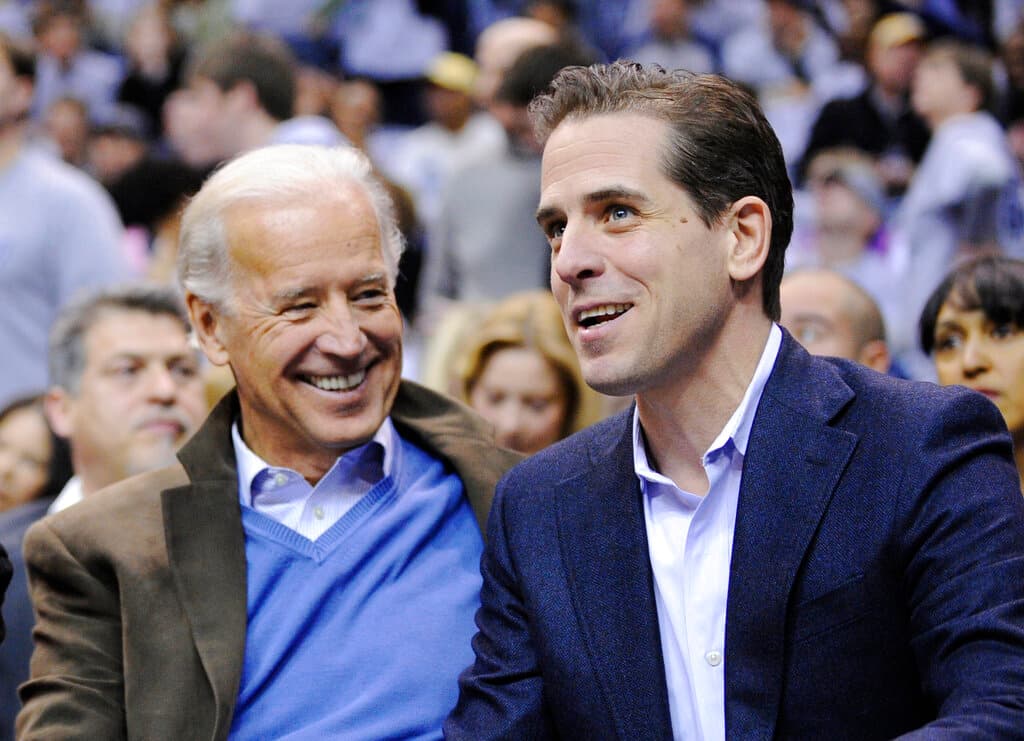Charges Against Hunter Biden Deserve To Be Tried in Open Court
A courageous United States district judge takes only a question or two to unravel a deal that defense lawyers claimed would have left the first son in the clear.

The collapse of the plea deal between Hunter Biden and his father’s justice department is an important moment. The deal unraveled as a United States district judge, Maryellen Noreika, began probing to ascertain what, if any, limits the pact placed on future charges against the younger Biden. That’s significant because every day, it seems, there are more questions being raised about the business dealings of Hunter — and, too, his father.
The scale of Hunter Biden’s wheeling and dealing — spanning at least Ukraine, Mexico, and China — and the suggestions of paternal collaboration underscore concerns that the younger Mr. Biden in effect partnered with his father in the sale of the vice presidency. The chaos in court today erupted over whether the plea agreement at issue would preclude further charges, beyond the tax evasion and gun-related charges immediately at issue.
We understand that after today’s plea agreement debacle there are going to be calls for the appointment of a special prosecutor to take over this investigation. One of the IRS whistleblowers decrying Hunter Biden’s special treatment in the matter, Joseph Ziegler, has already suggested bringing in an “independent attorney” who can “bring the proper charges so that there can be some faith restored in our justice system.”
The constitutional way to pursue this, though, is for the regular prosecutors of the justice department to stay the course. We’ve opposed deploying special prosecutors, regardless of party, in cases involving Presidents Reagan, George H.W. Bush, Clinton, and Trump. Special prosecutors, or independent counsels, or whatever one wants to call them, intrude on the powers of the presidency and separation of powers under the Constitution.
The investigation and prosecution of crimes is a matter for the executive branch of government. The Constitution vests all the executive power in the president. Any effort to obscure or divert this authority by creating some ostensibly “independent” officer to prosecute crime not only impairs the president’s power, it also disturbs “the separation and equilibration of powers in general,” Justice Antonin Scalia noted in Morrison v. Olson.
In that case, the Nine upheld a law that allowed the judicial branch to appoint an “independent counsel.” Scalia, lone dissenter, saw such an appointment as an aberration. The Great Scalia warned that focusing an independent — we would include special — prosecutor to go after our head of state could affect the “boldness of the president.” So could a special prosecutor against the first son. “This wolf,” Scalia famously warned, “comes as a wolf.”
Hunter Biden’s day in court today lets us see the separated powers working as intended. Judge Noreika asked prosecutors if the deal gave the president’s son permanent immunity from prosecution — “including violations related to representing foreign governments,” as the Times put it — despite what prosecutors say is an “ongoing” investigation. When prosecutors denied this, defense lawyers called the deal “null and void.”
Judge Noreika asked, too, if there existed “any precedent” for such an arrangement as the one for Hunter Biden. She pointed to the fact that “it had been filed under a provision that gave her no legal authority to reject it,” the Times reported. “No, your honor,” a prosecutor replied. No wonder that the judge repeatedly emphasized her refusal, in her words, to “rubber stamp” the plea deal. The deal could be revived, though its logic fades.
Just the other day, we issued an editorial recalling the role played by Judge John J. “Maximum John” Sirica in breaking open Watergate. “Who is going to do that in respect of the case of Hunter Biden and his father?” we asked. “Could it yet be, say, Judge Maryellen Noreika?” We noted that she hadn’t yet “earned the sobriquet of ‘Maximum Maryellen.’” By holding the line on the rule of law today, though, she could be rising to the occasion.

